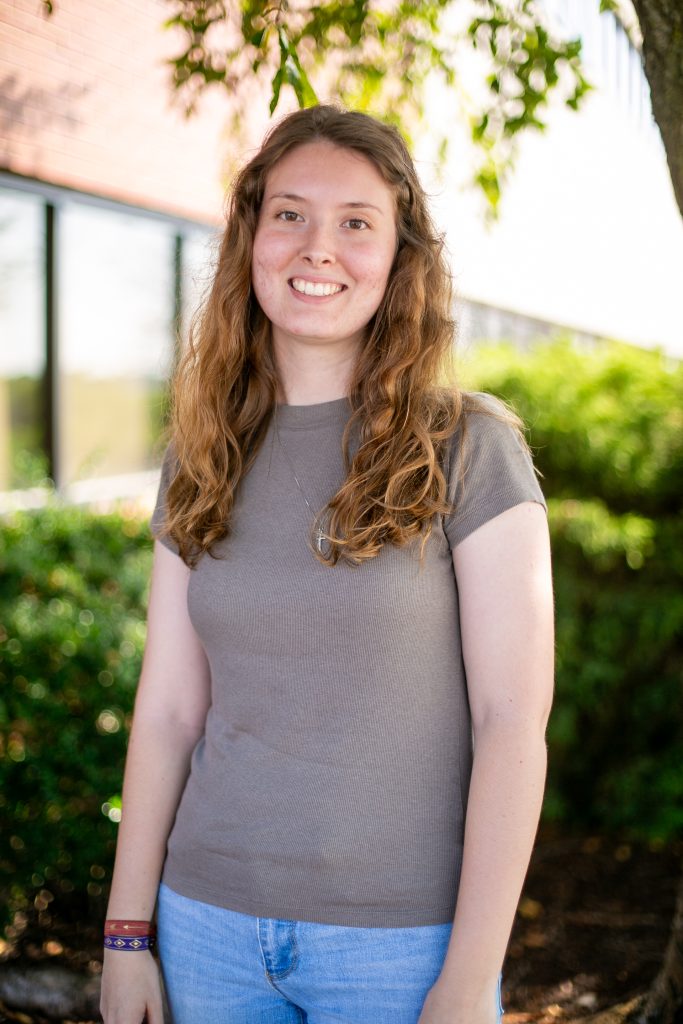Criminal justice professor connects students with local law enforcement agencies

According to Hollywood, law enforcement is all about high-stakes undercover operations, climactic drug busts and the drama that goes on between officers in the break room. However, TV doesn’t come close to what real-life police officers and other professionals experience. Criminal justice professor Amanda Trent seeks to bridge the gap between fact and fiction by bringing local law enforcement and Liberty students together to serve the Lynchburg community.
Trent first began working at Roanoke City Sheriff’s Office in 1997. She worked in the jail system for several years before she served as the first female in warrant services in her agency. After 12 years of rising through the ranks, a large regional jail institution began construction in Roanoke County. Trent took a position there as part of the transition team.
As the professional standards unit lieutenant, Trent hired and trained employees, wrote policies and consulted engineers for the new facility, the Western Virginia Regional Jail (WVRJ). Once the facility was built, she worked there in a variety of roles, such as a death investigator and a hostage negotiator. She eventually was promoted to captain, then major. She worked at WVRJ for another 12 years.
Since January 2020, Trent has been a full-time professor of criminal justice at Liberty University.

“When I left six years short of my retirement, people thought I was crazy because I wasn’t 50 yet, (but) God made it just crystal clear that this is where I’m supposed to be,” Trent said. “Every day that I’ve spent on campus since then, every interaction I’ve had with a student, everything has shown me daily that (God) knows … and he is so thoughtful.”
As a teacher, Trent has observed how false perceptions of law enforcement due to TV shows and movies can cause students to overlook local agencies in favor of federal ones — despite many local agencies being the place where students can make the most difference. Trent strives to show students the impact working with local agencies can have.
In serving on the Virginia Association of Regional Jails, Trent connects students to internships and CSER opportunities with the agencies represented. She also asks the other members of the agencies about the recurring problems they’re observing in their area. She takes these real-world issues to class and assigns them to students as topics for their research projects.
Law enforcement professionals are often invited to these project presentations to not only provide feedback for the students, but to learn from the research that they might not have the time to conduct themselves.
For example, two years ago a local jail told Trent about how they were struggling with recruitment retention. After conducting research, a student group in one of her classes created a program for this jail that essentially acted as an internship. It allowed interns to see what it’s like to make security rounds, work in a control room, fill out paperwork and otherwise experience working in a jail. As a result of implementing this student-created program, the jail has seen an increase in applicants for positions.

“There’s such a need for good law enforcement officers, but they’re so busy doing the work, they can’t seek out good applicants,” Trent said. “They’re so busy reacting to crimes … (for example,) they’re managing the fentanyl busts that they’re seeing (in Lynchburg). They can’t stop long enough to say, ‘I wonder where all this fentanyl is coming from. And is it all being packaged the same way? Is it all one distributor? And where is it coming in at?’ (Officers) can’t do the back-end stuff because they’re so busy and so overtaxed. Had I not reached out, I don’t know if it would have ever occurred to them to say, ‘There’s a thousand criminal justice students at Liberty that would love to do something realistic.’”
In general, Trent sees a need for more collaboration and interaction between criminal justice students and local agencies. Many students tell her that they want to work in law enforcement to help human trafficking victims. However, they’re often unaware that Lampstand, a nonprofit dedicated to doing just that, offers opportunities for them to help and is less than an hour away in Roanoke.
“You’ve got all these human trafficking victims that are without services, without hope, without all of these things,” Trent said. “And, yet, you have, not 40 minutes down the road, hundreds of kids that have that Christian worldview, that hope, to give to someone else.”
To get involved in Lampstand’s ministry, visit their website. To find out more about the local law enforcement scene today, reach out to the Liberty criminal justice professors to see how you can serve.
Bear is the feature editor for the Liberty Champion

